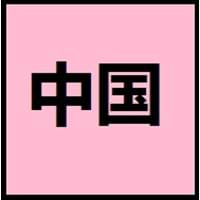Hausa vs Chinese
Countries
Nigeria
China, Hong Kong, Macau, Singapore, Taiwan
National Language
Gambia, Nigeria
China, Taiwan
Second Language
Nigeria
Republic of Brazil
Speaking Continents
Africa
Asia
Minority Language
Benin, Cameroon, Cote d'Ivoire, Ghana, Niger, Sudan, Togo
Indonesia, Malaysia
Regulated By
Not Available
Chinese Language Standardization Council, National Commission on Language and Script Work, Promote Mandarin Council
Interesting Facts
- Hausa language is the most important and the best known of the Chadic branch.
- There are about one-fourth of Hausa words come from Arabic.
- Chinese language is tonal, since meaning of a word changes according to its tone.
- In Chinese language, there is no grammatical distinction between singular or plural, no declination of verbs according to tense, mood and aspect.
Similar To
Not Available
Not Available
Derived From
Not Available
Not Available
Alphabets in
Hausa-Alphabets.jpg#200
Chinese.jpg#200
Scripts
Latin
Chinese Characters and derivatives
Writing Direction
Not Available
Left-To-Right, Horizontal, Top-To-Bottom
Thank You
gode ku
谢谢 (Xièxiè)
How Are You?
yaya dai
你好吗? (Nǐ hǎo ma?)
Good Night
mai kyau dare
晚安 (Wǎn'ān)
Good Evening
barka da yamma
晚上好 (Wǎnshàng hǎo)
Good Afternoon
barka da rana
下午好 (Xiàwǔ hǎo)
Good Morning
mai kyau safe
早安 (Zǎo ān)
Please
Don Allah
请 (Qǐng)
Sorry
yi hakuri
遗憾 (Yíhàn)
Bye
sai anjima
再见 (Zàijiàn)
I Love You
Ina son ku
我爱你 (Wǒ ài nǐ)
Excuse Me
gafara dai
劳驾 (Láojià)
Dialect 1
Gaananci
Mandarin
Where They Speak
Ghana
China, Malaysia, Singapore, Taiwan
How Many People Speak
Not Available
Where They Speak
Niger
China, United States of America
How Many People Speak
Not Available
Where They Speak
Niger
China, Malaysia, Singapore, Vietnam
How Many People Speak
Not Available
Native Name
حَوْسَ (ḥawsa)
中文 (zhōngwén)
Alternative Names
Abakwariga, Habe, Haoussa, Hausawa, Kado, Mgbakpa
Not Available
French Name
haoussa
chinois
German Name
Haussa-Sprache
Chinesisch
Pronunciation
Not Available
Not Available
Ethnicity
Hausa–Fulani people
Han
Language Family
Afro-Asiatic Family
Sino-Tibetan Family
Subgroup
Chadic
Not Available
Branch
Not Available
Not Available
Early Forms
No early forms
No early forms
Standard Forms
Hausa
Standard Chinese
Signed Forms
Not Available
Wenfa Shouyu 文法手語 ("Grammatical Sign Language", Signed Mandarin (Taiwan))
Scope
Individual
Individual
ISO 639 6
Not Available
Not Available
Glottocode
haus1257
sini1245
Linguasphere
19-HAA-b
79-AAA
Language Type
Living
Living
Language Linguistic Typology
Subject-Verb-Object
Subject-Verb-Object
Language Morphological Typology
Fusional
Analytic, Isolating
Hausa and Chinese Language History
Comparison of Hausa vs Chinese language history gives us differences between origin of Hausa and Chinese language. History of Hausa language states that this language originated in 14 whereas history of Chinese language states that this language originated in 1250 BC. Family of the language also forms a part of history of that language. More on language families of these languages can be found out on Hausa and Chinese Language History.
Hausa and Chinese Greetings
People around the world use different languages to interact with each other. Even if we cannot communicate fluently in any language, it will always be beneficial to know about some of the common greetings or phrases from that language. This is where Hausa and Chinese greetings helps you to understand basic phrases in Hausa and Chinese language. Hausa word for "Hello" is sannu or Chinese word for "Thank You" is 谢谢 (Xièxiè). Find more of such common Hausa Greetings and Chinese Greetings. These greetings will help you to be more confident when conversing with natives that speak these languages.
Hausa vs Chinese Difficulty
The Hausa vs Chinese difficulty level basically depends on the number of Hausa Alphabets and Chinese Alphabets. Also the number of vowels and consonants in the language plays an important role in deciding the difficulty level of that language. The important points to be considered when we compare Hausa and Chinese are the origin, speaking countries, language family, different greetings, speaking population of these languages. Want to know in Hausa and Chinese, which language is harder to learn? Time required to learn Hausa is 44 weeks while to learn Chinese time required is 88 weeks.





